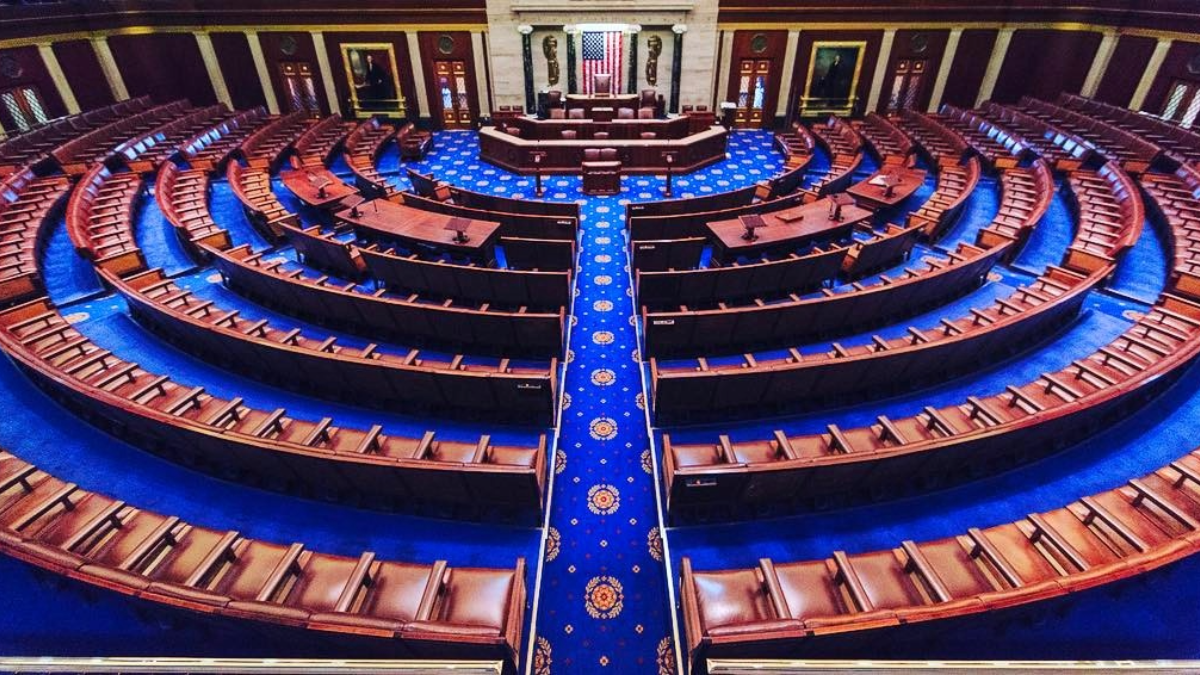Congress: Do the Right Thing on Surveillance Oversight
Jenna Ruddock / Dec 12, 2023
The U.S. House of Representatives. Wikimedia
Another contentious election year is rapidly approaching in the US, and that often limits the possibilities for what Congress can accomplish. The next few days present a rare opportunity for lawmakers to rein in both government and commercial surveillance in this era of unprecedented data collection.
Today, government agencies and private corporations can peer into our day-to-day lives in ways that would have been unthinkable even a decade ago: through our phones, computers, smart devices, public and private video surveillance, facial recognition tools and more. These ever-evolving capabilities threaten privacy, undermine constitutional protections, and risk chilling community and political organizing.
But the end-of-year sunsetting of Section 702 of the Foreign Surveillance Intelligence Act (FISA) has created a window of opportunity to enact critically needed reforms to a core government surveillance authority. Recent disclosures have underscored how FISA 702 has enabled domestic spying despite supposedly authorizing surveillance only of “foreign intelligence targets” outside of the United States.
Section 702 has enabled all kinds of warrantless domestic law enforcement searches. Among the targets: thousands of protesters, including racial justice advocates following the murder of George Floyd; a state court judge who reported a local police chief’s suspected civil rights violations; 19,000 donors to a specific congressional campaign — and even sitting members of Congress. FBI disclosures earlier this year confirmed that law enforcement agencies’ existing internal privacy and civil liberties safeguards are not enough to prevent this unwarranted spying on what the statute refers to as “US persons” (a much broader category than just citizens).
At the same time, growing attention to the risks of digital surveillance has put a spotlight on the increasingly lucrative and virtually unregulated data-broker industry, which allows government agencies to buy information directly from commercial intermediaries — data that might otherwise be protected under constitutional requirements for a warrant. In early October, 404 Media reported on newly public findings from the Department of Homeland Security Inspector General revealing that parts of the DHS – including Immigration and Customs Enforcement, Customs and Border Protection, and the Secret Service – bought location data collected from mobile apps without complying with internal agency privacy policies (or even developing adequate policies in the first place).
In recent weeks, Congress made significant progress toward passing reforms that would address both of these urgent issues. Both the Government Surveillance Reform Act (GSRA) proposed in the House and Senate and the Protect Liberty and End Wireless Surveillance Act (PLEWSA) proposed in the House would curtail Section 702’s abuses and limit the ability of government agencies to buy sensitive data, including location data, from data brokers. Last week, PLEWSA passed out of the House Judiciary Committee on an overwhelmingly bipartisan 35–2 vote. That bill should move to the House floor as soon as possible.
But despite widespread support for these efforts from civil rights groups and both sides of the aisle in Congress, they could be brushed aside in the next few days — sending us into 2024 and beyond with far fewer protections from warrantless government surveillance than we otherwise would have.
Some lawmakers are pitching the misleadingly titled FISA Reform and Reauthorization Act as an alternative but still significant overhaul of Section 702. Instead, it would fail to curb warrantless surveillance — and would actually expand the scope of individuals whose communications could be searched without a warrant. The bill would also implicate a much broader range of businesses that might be required to assist with this surveillance, including places like coffee shops and libraries that simply provide public Wi-Fi access.
Then there’s the least democratic option on the table: folding a rushed Section 702 reauthorization into a must-pass defense spending bill, the National Defense Authorization Act (NDAA). That would mean no reform of this government surveillance authority that everyone agrees has been abused. It would mean no restrictions on warrantless surveillance of Americans, or on government buying this information from data brokers. It would be an unnecessary green light and extension for more of the same overreaches.
Instead, US lawmakers must seize this opportunity to substantively reform a misused government surveillance authority and protect civil rights and liberties. They must also rein in government agencies’ use of commercial intermediaries, like data brokers, to circumvent constitutional protections against warrantless searches of our data. Any failure to enact stronger privacy protections across the board will disproportionately impact communities — including immigrants, religious minorities and political activists — that already suffer the harms of targeted surveillance.
The good news is that solutions are already on the table. Now all Congress has to do is vote for them.
Authors
